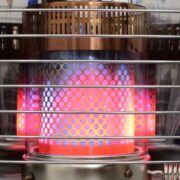Ovens are an essential part of modern kitchens, playing a crucial role in both daily cooking and special occasions.
When your oven stops working correctly, it can disrupt your daily routine and culinary plans. That’s why understanding the basics of oven repair is vital for any homeowner.
Common Oven Problems
Ovens can encounter various issues, from uneven baking to temperature inconsistencies. Some common problems include:
- Heating Element Failures: If your oven isn’t heating up properly, it could be due to a faulty heating element.
- Thermostat Issues: A malfunctioning thermostat can lead to temperature regulation problems, affecting your cooking.
- Door Seal Damages: A damaged door seal can lead to heat loss, resulting in longer cooking times and higher energy bills.
- Ignition and Gas Flow Problems (for gas ovens): These can prevent the oven from heating up at all.
DIY vs. Professional Repair
While some minor issues, like replacing a light bulb, can be a DIY task, most oven repairs require professional expertise.
Attempting to fix complex issues on your own can be dangerous, especially with gas ovens. Professionals have the necessary tools and knowledge to diagnose and fix problems safely and efficiently.
Oven Maintenance Tips
To reduce the need for repairs, regular maintenance is key. Here are some tips to keep your oven in top shape:
- Regular Cleaning: Keep your oven clean from food spills and grease, which can cause smoke and odors.
- Inspecting Elements and Seals: Regularly check the heating elements and door seals for any signs of wear or damage.
- Avoid Overloading: Overloading your oven can lead to uneven cooking and strain the appliance.
When to Call a Professional
If you encounter any of the following, it’s time to call a professional for oven repair:
- Unusual noises during operation
- The oven doesn’t heat up or heats too much
- Electrical issues, such as tripping the circuit breaker
- Gas smell (for gas ovens)
For expert oven repair services, consider reaching out to specialists who can ensure your oven returns to its optimal condition.
Selecting the Right Oven Repair Service
Choosing the right service for your oven repair is crucial. Here are factors to consider when selecting a repair service:
Experience and Expertise
Look for a service with a proven track record of repairing ovens. Experienced technicians can handle a wide range of issues and are likely familiar with your oven’s brand and model.
Quality of Service
Read reviews and ask for recommendations to gauge the quality of service. A reliable service provider should be punctual, professional, and transparent about costs.
Warranty and Guarantees
Choose a repair service that offers warranties on their work. This shows confidence in their expertise and provides you peace of mind.
Cost-Effectiveness
Compare quotes from different services. Remember, the cheapest option is not always the best. Consider the balance between cost and quality of service.
Preventative Maintenance: The Key to Longevity
Regular maintenance can significantly extend the life of your oven and prevent frequent repairs. Here are some preventative measures:
- Regular Inspections: Schedule periodic check-ups, especially before heavy usage periods like holidays.
- Replacing Worn Parts: Proactively replace parts like filters or seals before they fail.
- Professional Calibration: Ensure your oven’s temperature is accurately calibrated for optimal performance.
Conclusion: Ensuring a Well-Functioning Oven
A well-maintained oven is essential for enjoyable and efficient cooking.
By understanding common problems, knowing when to seek professional help, and maintaining your appliance, you can ensure your oven remains a reliable kitchen companion for years to come.
For professional oven repair and maintenance, explore your options with experienced technicians.














Comments